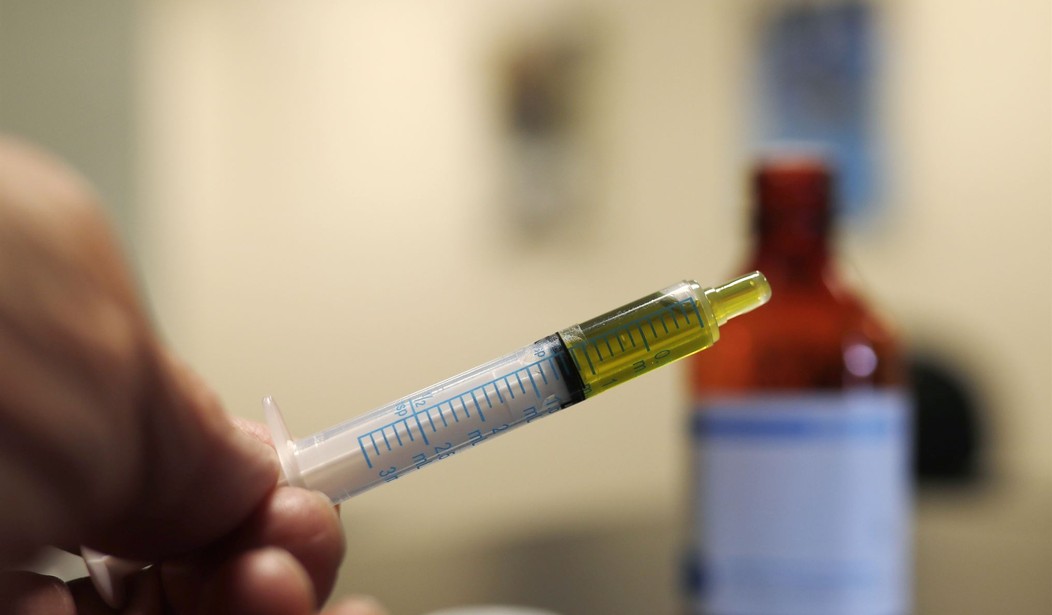One of the recurring complaints from the World Health Organization and activists trying to assist underdeveloped nations deals with the slow pace of distribution of COVID vaccines to nations with no ability to produce them for themselves. While tens of millions of doses have been sent to poorer nations by a number of countries (including the United States, China, and Russia) it’s true that more than 90% of the approved doses produced so far have gone to the more economically developed nations. With impatience and even anger toward the major pharmaceutical companies growing in some international groups, the World Health Organization is currently endorsing an unusual effort to allow others to take matters into their own hands. A laboratory has been established in South Africa where scientists are trying to reverse engineer the Moderna vaccine so they can produce it there themselves for the people of the sub-Saharan African nations. But will Moderna have anything to say about this apparent violation of its intellectual property rights? (Associated Press)
In a pair of Cape Town warehouses converted into a maze of airlocked sterile rooms, young scientists are assembling and calibrating the equipment needed to reverse engineer a coronavirus vaccine that has yet to reach South Africa and most of the world’s poorest people.
The energy in the gleaming labs matches the urgency of their mission to narrow vaccine disparities. By working to replicate Moderna’s COVID-19 shot, the scientists are effectively making an end run around an industry that has vastly prioritized rich countries over poor in both sales and manufacturing.
And they are doing it with unusual backing from the World Health Organization, which is coordinating a vaccine research, training and production hub in South Africa along with a related supply chain for critical raw materials. It’s a last resort effort to make doses for people going without, and the intellectual property implications are still murky.
The company attempting this feat is Afrigen Biologics and Vaccines. South Africa has never created a vaccine of its own for anything, to say nothing of delving into the experimental mRNA technology that went into making the Moderna and Pfizer vaccines. Of course, there’s nothing wrong with South Africa trying to make a domestic vaccine of their own. Plenty of countries are already doing just that. What’s different here is that Afrigen is making no effort to hide the fact that they’re not just cooking up a new vaccine from scratch. They ordered some vials of Moderna’s vaccine specifically to tear them apart and try to figure out how to reproduce the magic.
This would appear to be a clear violation of Moderna’s intellectual property rights and in more normal times you could easily imagine them taking the offenders to court. But will they really do that in this case? Protecting your assets is one thing, but trying to slap a lawsuit on a company that will be viewed in the international community as heroes for trying to get the vaccine to some of the poorest and most desperate people on the planet could be a significant black eye for them in terms of public relations.
The Biden administration has been pressuring all of the American pharmaceutical companies to share both their technology and their shipments but it hasn’t led to much action. Moderna has already said they plan to open a vaccine research and production facility in South Africa, but that won’t be happening any time soon.
Some from the Biden administration have previously suggested that Moderna and Pfizer don’t really “own” the rights to these new, experimental vaccines because the American taxpayers funded so much of the research under the Operation Warp Speed plan. That seems like a rather dubious argument, however. Nobody held a gun to the Trump administration’s head and forced them to fork over the money. Those were grant funds intended to allow the companies to work around the clock to produce the vaccines more quickly. If there had been some fine print in the program specifying that Moderna was surrendering their property rights in exchange, I imagine we’d have heard about it by now.
Perhaps the bigger question we should be asking right now isn’t whether or not Afrigen can legally do this, but rather if they’re capable of doing it at all. Going from never having produced a vaccine straight to making one using mRNA technology that’s still in development is akin to leaping from tinkering with your bicycle to building a Lamborghini from scratch in your garage, isn’t it? Perhaps it’s best to just keep doing what we’re doing and wait to see whether they can actually replicate the process.









Join the conversation as a VIP Member